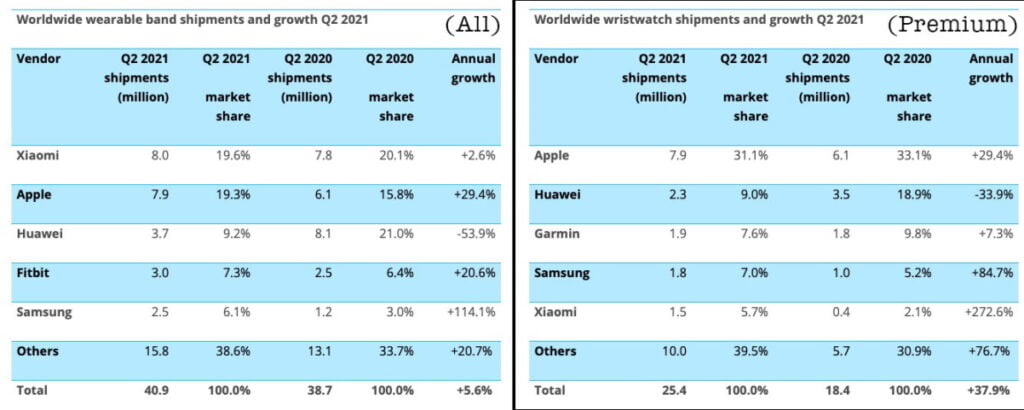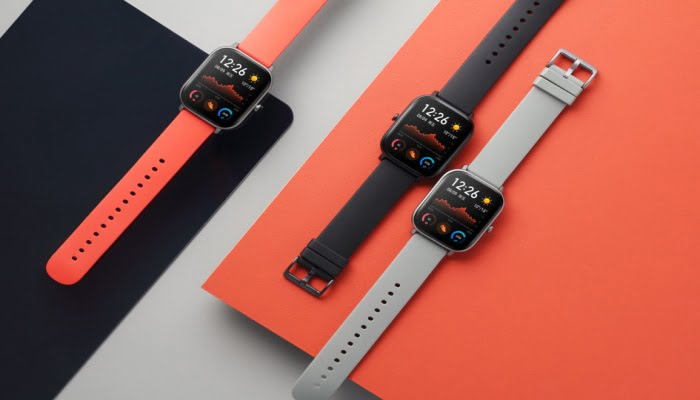According to a market intelligence assessment, Xiaomi narrowly surpassed Apple in the smartwatch market during the second quarter. Xiaomi was ranked first, followed by Apple, Huawei, and Fitbit, with Samsung in the lowest place.
As per the survey, Xiaomi shipped 8 million smartwatches in Q2, compared to 7.9 million Apple Watches…

The fact that Xiaomi released a new model during the quarter, while Apple Watch users wait for the Series 7 to be released later this month, suggests that timing is a key issue.
Recommended: 10 Best Smartwatches for Android and iOS: The Best Wearables You Can Buy Right Now
Xiaomi overtook Apple to become the top-shipping wearable band vendor in Q2 2021. Xiaomi’s performance was bolstered by the launch of the Mi Smart Band 6, despite India, one of Xiaomi’s strongholds, not on the initial global launch list.
“Xiaomi made a wise move to hasten the release of the Mi Band 6, which is a more compelling device than its predecessor,” said Canalys Research Analyst Cynthia Chen. “Xiaomi’s quick pivot to basic watches also helped the company boost its wristwatch shipments by 1.3 million units this quarter.”
Canalys, on the other hand, differentiates between “basic bands,” such as low-cost Fitbit and Xiaomi smartwatches, and more advanced smartwatches. Apple continues to dominate the latter market, with a market share of 31.1 percent and no other brand coming close.
Also Read: 15 Best GPS Smartwatches For Kids
From second-placed Huawei’s 9% to Xiaomi’s 5.7 percent, all of the other players have single-digit shares.
Apple’s lead is owing in part to its emphasis on health features like ECG monitoring.
“Vendors are attempting to make a big generational leap in smartwatch technologies. To stand out, they are improving the fundamentals, such as user experience and battery life, creating their own distinct UIs and leveraging their respective ecosystems to draw out new and unique use cases,” said Canalys Research Manager Jason Low. “But health tracking is the most prominent use case for smartwatches. The ability to deliver cutting-edge health-tracking features and to offer users meaningful data and actionable health insights will set winners and losers apart.”
“It is vital that vendors invest in next-generation health sensors and developing in-house algorithms and solutions to not only track vital biomarkers, but also to ensure good accuracy and reliability. Vendors should focus on giving users insights into health trends involving data collected over a longer period of time, so that they can understand how their lifestyles are affecting their wellbeing.”
Despite one claim to the contrary, the Series 7 is not likely to have any more sensors, although Apple is said to be aiming to include blood sugar and blood pressure monitoring at some point in the future.










